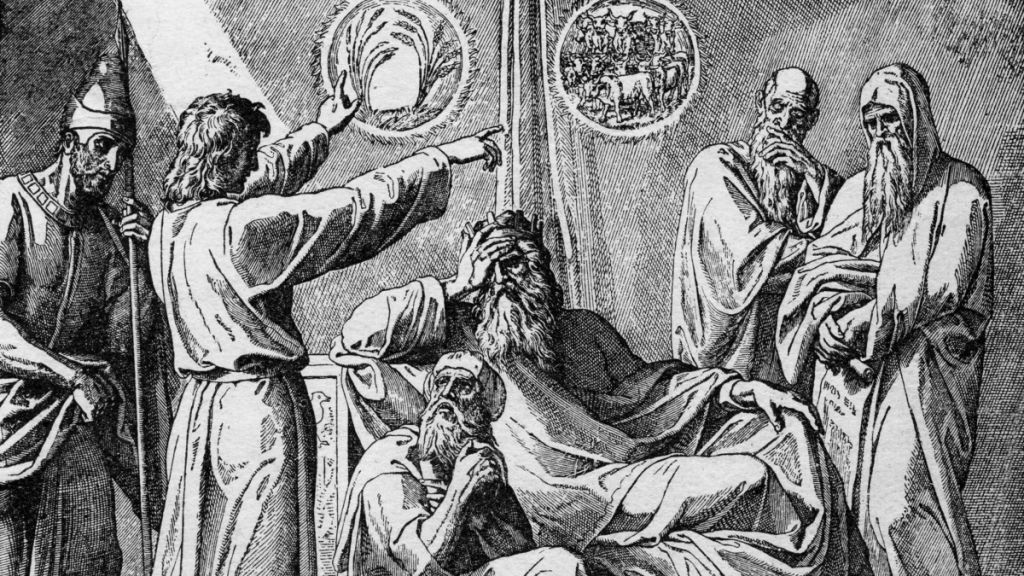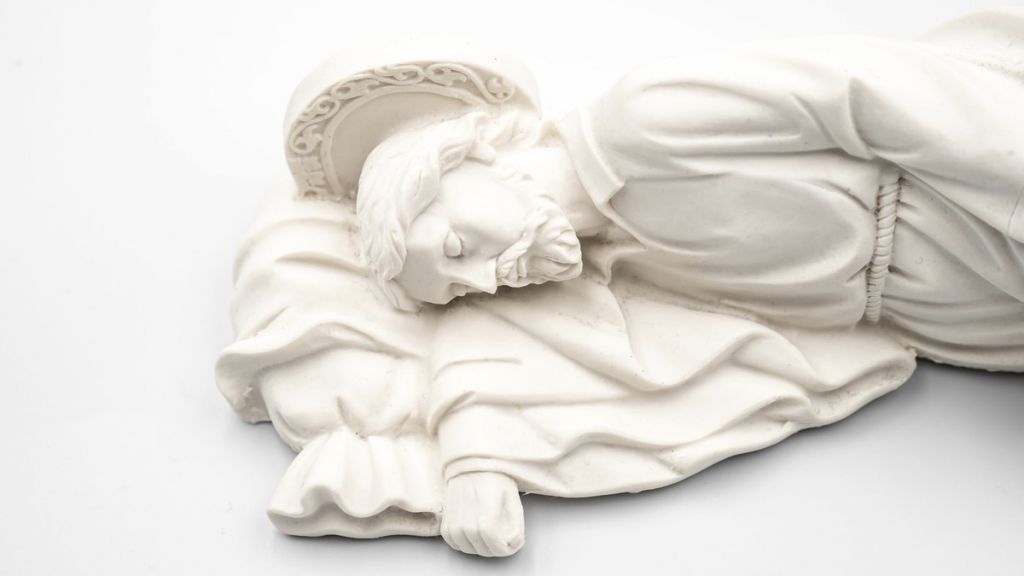‘I would like you to enlighten me regarding biblical meaning of dreams.‘
(question from a student, J.).
Answer given by Pastor Christian Salcianu,
15th April 2024, Watford
We all dream dreams
We all dream, as it is a normal human brain activity during our sleep. And we all remember some dreams, and we also forget others. Of course, the vast majority of the dreams are subjective, with no meaning for present or the future. A philosopher or a scientist may dream of a solution, a formula, a better way to deal with a troubling issue. A person may get a warning in a dream, or a call to run to/from a certain place. A student may dream about the topic of his or her next exam. Some will speculate on specific dreams, others will fear them, while people of God may want indeed to know more.
Dreams in biblical times
Back in biblical times dreams were considered ways in which the gods speak to people, conveying messages of life and death importance. And the Bible confirms it many times, whether they were leaders or servants, people of God or far away from Him.

You may read in Genesis the stories of different characters: Abimelek (20:3), Jacob (Genesis 28:12), Joseph (37:5, 9), servants of Pharaoh, the baker and the cup bearer (40:5), Pharaoh himself (41:1, 9-13 etc). In Daniel’s time you will find it again, Nebuchadnezzar (Daniel 2), Daniel himself (7:1).
In New Testament times you will find Joseph, Mary’s husband where the dreams played an important role, being mentioned four times (Matthew 1:20; 2:13; 2:19; 2:22); the same for the wisemen from the East (Matthew 2:12). Even Pilate’s wife had a very significant dream about Jesus Christ (see in Matthew 27:19).
To be very specific now,
- God spoke to Moses using this means. ‘When there is a prophet among you, I, the Lord, reveal myself to them in visions, I speak to them in dreams’ (Numbers 12:6).
- When Joseph was called to give interpretations, he said that God gives the interpretation (not humans): ‘Joseph said to them, Do not interpretations belong to God? Tell me your dreams’ (Genesis 40:8).
- Later, with the king of Egypt, Joseph confirmed again the source and authority of right interpretations. And Pharaoh said to Joseph, ‘I have had a dream, and there is no one who can interpret it. But I have heard it said of you that you can understand a dream, to interpret it. So Joseph answered Pharaoh, saying, It is not in me; God will give Pharaoh an answer of peace (Genesis 41:15-16).

- In Daniel’s experience it was clear as well, that God was the source of prophetic dreams and their interpretations. ‘To these four young men God gave knowledge and understanding of all kinds of literature and learning. And Daniel could understand visions and dreams of all kinds’. (Daniel 1:17)
- In chapter 2, ‘The king answered and said to Daniel, Are you able to make known to me the dream which I have seen, and its interpretation? Daniel answered in the presence of the king, and said, The secret which the king has demanded, the wise men, the astrologers, the magicians, and the soothsayers cannot declare to the king. But there is a God in heaven who reveals secrets, and He has made known to King Nebuchadnezzar what will be in the latter days’ (Daniel 2:26-28). And verse 30, as well: ‘But as for me, this secret has not been revealed to me because I have more wisdom than anyone living…’
- In apostolic times and most probably in the end times these will be repeated as well: ‘I will pour out my Spirit on all people. Your sons and daughters will prophesy, your old men will dream dreams, your young men will see visions’ (Joel 2:28 confirmed in Acts 2:17).
False dreams (from false prophets)
However, to flip the coin and reading from the book of Solomon called Ecclesiastes: ‘a dream comes through much activity’? (Ecclesiastes 5:3) One can read this as meaning: too much activity makes you dream (a night dream); other may read it as: a dream (a purposed plan) may get fulfilled only after much toil towards it. In other versions the text sounds more discouraging about the dreams, pointing rather to have faith in God: ‘Much dreaming and many words are meaningless. Therefore fear God’ (Ecclesiastes 5:7).
Other may lie about dreams, whether they are false, invented, exaggerated etc. The Bible warns us of people who will abuse it. ‘The idols speak deceitfully, diviners see visions that lie; they tell dreams that are false, they give comfort in vain’ (Zechariah 10:2). Some will announce dreams but along with their supranatural experience their message will convey a call to worship false gods, and, accordingly, it is all a disqualifying effort. ‘If a prophet, or one who foretells by dreams, appears among you and announces to you a sign or wonder, and if the sign or wonder spoken of takes place, and the prophet says, “Let us follow other gods” (gods you have not known) “and let us worship them,” you must not listen to the words of that prophet or dreamer’ (Deuteronomy 13:1-3). The same can be seen in Jeremiah 23:32: ‘Indeed, I am against those who prophesy false dreams, declares the Lord. They tell them and lead my people astray with their reckless lies, yet I did not send or appoint them. They do not benefit these people in the least,” declares the Lord.’
How to approach dreams?
In closing, we think it is better to go to God, and let Him explain. To Pharaoh He gave the dream twice, to confirm; to the baker and cupbearer He made it known by its fulfilment, to Nebuchadnezzar it was a push to find who is telling the truth (Daniel) and who is not (his astrologers). To Joseph or the wisemen, when God spoke to them in a dream (and mind you, in Matthew 1 and 2 there is a repetition of dreams) God did it in such a way as there was no need for interpretation.

Let us repeat that: usually there was a need for interpretation when the pagans were involved (Pharaoh, baker, cupbearer, Nebuchadnezzar), but not so to Jacob (the staircase to heaven), Joseph and his brothers, Daniel or Joseph (husband of Mary, in the New Testament).
What to do next?
Again, wait for God to lead you all the way. Beware of presumption, assumption, giving your spin of interpretation to a dream. I would not disregard all dreams, as God may still speak to us in dreams (not necessarily that we are prophets, but He can remind us of something, making us aware of a situation etc.). At the same time, I wouldn’t claim any prophetic abilities to interpret my own dreams (or someone else’s for that matter). When God gives a dream He will also give the interpretation. I would stick to the Bible, as this is the Word of God plain to all, available to all, beyond speculative or subjective approaches.





